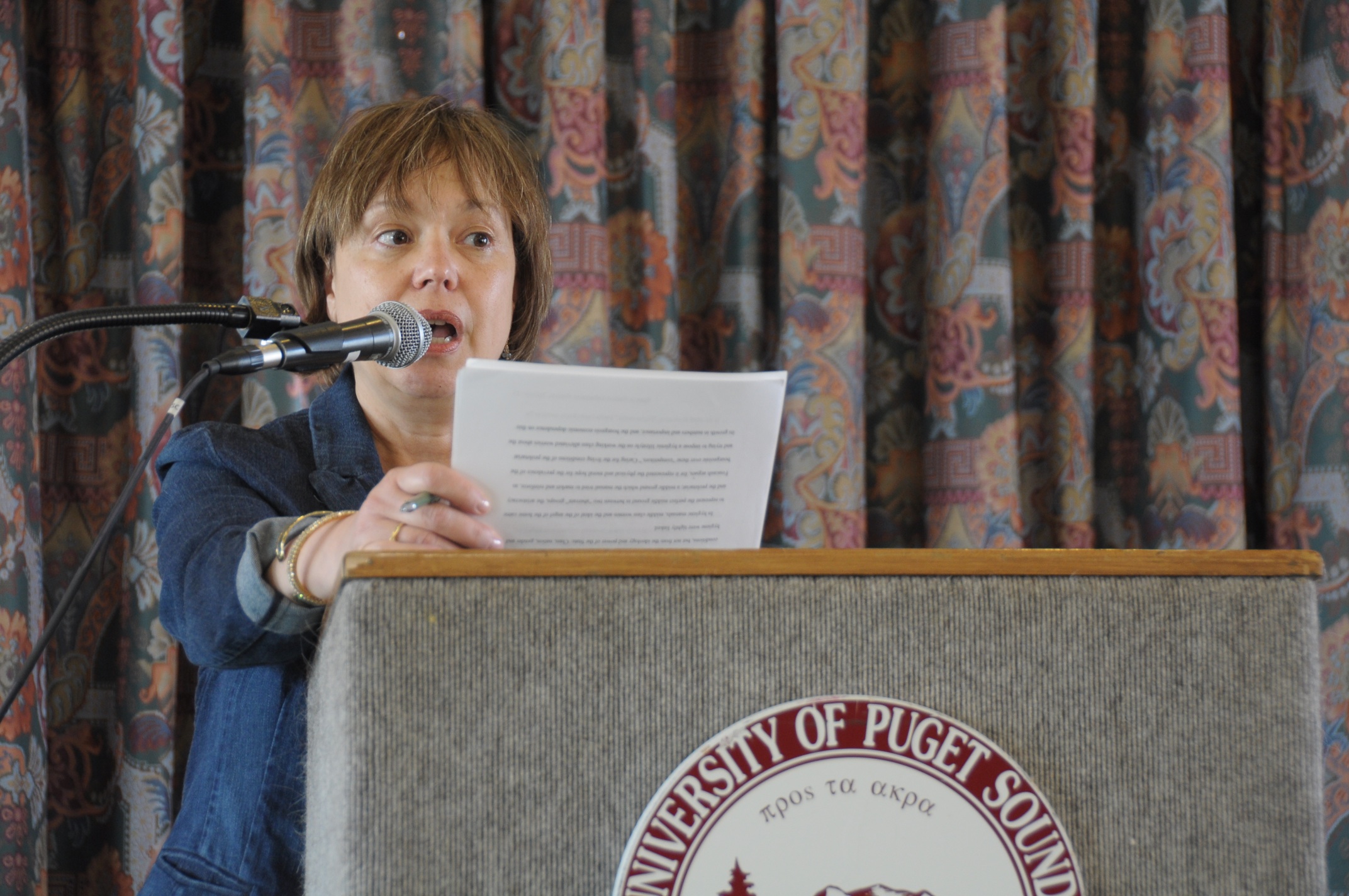
Six years ago it began with one professor’s vision. Professor Oswaldo Estrada of the Hispanic Studies Program wanted to share his knowledge, as well as the knowledge of his fellow professors and students, with the wider campus community. As a result, the Spanish Matters Colloquium was born.
“Professor Estrada came up with the idea to create a venue in which we could share our research, as professors and as students, with the larger campus community and with our peers at other local institutions,” Mark Harpring, associate professor of Foreign Languages and Literature, said.
“The idea is to present our research and what we do, whether it be on literature or culture, and to have some of the students present the research that they’ve done in classes,” he continued.
The Colloquium has always been held on campus and initially was only created for Puget Sound faculty and students. In the second year of the conference, it was opened up to members of PLU.
“It was something very small and very local at first, and it has grown enormously,” professor of Foreign Languages and Literature Pepa Lago-Graña said.
In fact, the Colloquium was initially put on as a way to introduce Spanish students to the research that their professors were working on, but it has since expanded to something much larger.
In the past, it has hosted speakers from as far away as Atlanta, and this year the second keynote speaker came all the way from Spain.
In this most recent Colloquium, hosted at various locations around campus on April 7 and 8, more than 10 colleges and universities were represented.
According to Lago-Graña, the Colloquium held presentations in English and Spanish, as well as some that were bilingual.
Harpring and Lago-Graña both presented papers that they had written along with other members of the Hispanic Studies Program. Harpring presented a paper on Friday morning titled “Imitation of Identities in Yo no tengo la culpa de haber nacido tan sexy,” which is a novel about a transsexual who wants to be a saint.
Lago-Graña, who is originally from Spain, presented her paper “Cuento – Guión – cortomenraje: Alberto Fuguet y la hibridez narrativa” on Thursday morning in the first session of the Colloquium. It was about how hybridity in genre responds to cultural identity and national identity.
Fellow professors Harry Vélez-Quiñones and Brendan Lanctot also presented pieces that they had written.
“The four of us have actually all been heavily involved in this process,” Harpring said. “And Rachel Sizer-Williams, our administrative assistant, she’s done a lot of work in making sure that everything goes off without a hitch.”
As for the obvious question of why Harpring and Lago-Graña think Spanish does matter, here is what they had to say:
“In the world that we live in, Spanish is becoming more and more predominant; especially in western Washington the Hispanic population is growing and growing,” Harpring said. “We have a whole segment of the population that we need to communicate with, and how do we do that? That’s with Spanish.”
According to Lago-Graña, the United States is rapidly approaching 50 million Spanish speakers.
“It matters because of the numbers, and I think there is an increasing awareness of the power and responsibilities that come with those numbers,” she said. “We cannot just be discounted and ignored. At one time maybe that presence or that strength in numbers was perceived as tranistory, and I think that that vision is very quickly going away.”
“There’s a whole world out there that speaks Spanish, and they are in this country, and it’s a country that’s very quickly becoming bilingual,” she continued.
As a final thought, Lago-Graña explained why the Spanish Matters Colloquium is so important to our university and other local institutions nearby.
“Really, if you look in the region of the Pacific Northwest, there isn’t a conference of this type anywhere,” Lago-Graña said. “We have been growing. I think we have people who are noticing us, and I think that we just provide something that is very unique.”
[PHOTO COURTESY / DANIEL PENDLETON]
